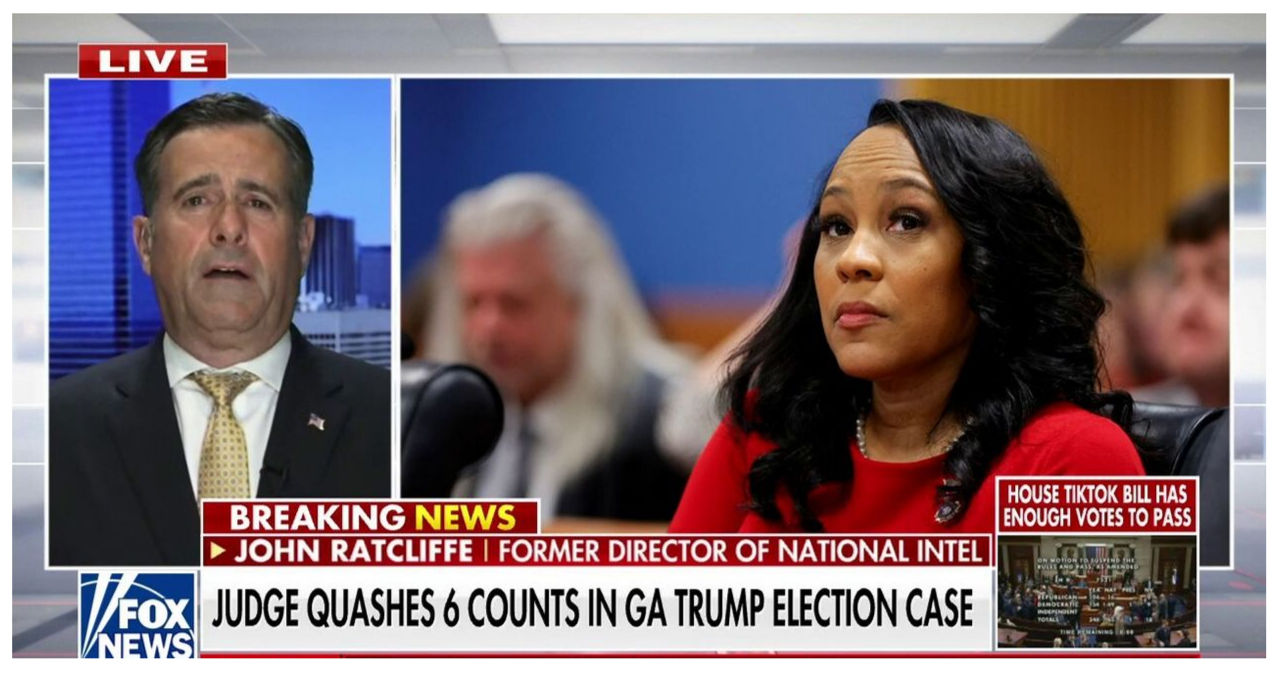A Fulton County judge has dismissed six counts in the Georgia election interference case against former President Trump and his 18 co-defendants.
In his order on Wednesday, Judge Scott McAfee stated that the state did not provide enough specific information for the six counts of “solicitation of violation of oath by public officer.”
According to McAfee, the Court is not concerned about the State’s failure to provide enough evidence against the Defendants, as there is plenty of it. However, the lack of specific information regarding a crucial legal element is, in McAfee’s opinion, a critical flaw.
The judge pointed out that while the six counts include all the necessary elements of the crimes, they lack sufficient detail about how the underlying felony was solicited.
Judge in Trump’s Georgia Case Faces Election Challenge from Civil Rights Attorney
In a surprising turn of events, the judge presiding over former President Donald Trump’s legal case in Georgia is now facing an election challenge from a civil rights attorney. This unexpected development adds another layer of complexity to an already contentious and closely watched legal battle.
The judge, who has been at the center of attention due to the high-profile nature of the case, now finds themselves in the spotlight for a different reason. The civil rights attorney, known for their dedication to fighting for justice and equality, has decided to run against the judge in the upcoming election.
This election challenge raises important questions about the impartiality and fairness of the judge’s handling of the case involving Trump. Critics argue that the judge’s previous rulings and actions may have been influenced by personal or political bias, and that a fresh perspective is needed to ensure a fair and just outcome.
On the other hand, supporters of the judge argue that their experience and expertise make them the best candidate for the position. They believe that the judge’s previous rulings have been based on a careful analysis of the law and that their record speaks for itself.
The outcome of this election challenge could have far-reaching implications for both the legal case involving Trump and the broader justice system in Georgia. It will be closely watched by legal experts, political pundits, and concerned citizens who are invested in ensuring a fair and transparent legal process.
As the election unfolds, the judge and the civil rights attorney will likely engage in a spirited campaign to win over voters. Both candidates will need to articulate their positions and convince the electorate that they are the right choice to uphold justice and fairness in the courts.
Ultimately, it will be up to the voters to decide the future of the judge’s position. Their decision will not only impact the outcome of the legal case involving Trump but also send a powerful message about the importance of an independent and unbiased judiciary in our democracy.
In the coming months, all eyes will be on Georgia as this unique election challenge plays out. The result will undoubtedly have significant implications for the legal community and the public’s perception of the justice system.
Judge Scott McAfee, presiding at the Fulton County Courthouse in Atlanta on February 15, dismissed six charges in the Georgia election interference case involving former President Donald Trump and his 18 co-defendants. (Photo: Alyssa Pointer, Getty Images)
The information provided to the Defendants is insufficient for them to prepare their defenses in a knowledgeable manner. The Defendants may have potentially violated the Constitutions and the statute in numerous distinct ways.
Georgia state law strictly prohibits public officers from intentionally violating their oath as prescribed by law. According to Fulton County District Attorney Fani Willis, Donald Trump and six others have been accused of illegally trying to persuade multiple state officials to violate their oaths. Their alleged objective was to overturn the 2020 presidential election in Georgia.
The indictment accuses individuals of allegedly making requests to members of the Georgia legislature to unlawfully appoint alternative presidential electors. It also alleges that Trump and his then-chief of staff Mark Meadows made efforts to solicit Georgia Secretary of State Brad Raffensperger to decertify the election.
Former President Trump addressed the Conservative Political Action Conference (CPAC) in Oxon Hill, Maryland on February 24, 2024 (AP Photo/Alex Brandon).
Several defendants raised objections to the counts, arguing that Willis failed to provide specific details about the oaths that were supposedly violated.
According to McAfee, the defendants should have been accused of soliciting an underlying felony in the indictment.
The judge emphasized that a mere accusation of solicitation cannot stand on its own without additional evidence proving the underlying felony being solicited.
Willis did not provide a comment in response to the request.
Trump’s legal team presented their closing arguments in the affair allegations made by Fulton County District Attorney Fani Willis, denouncing the accusations as “improper” and claiming they have caused an “irreparable stain.”
Fani Willis, the Fulton County District Attorney, was photographed at the Fulton County Courthouse in Atlanta on March 1, 2024. The image captures her presence and authority as she carries out her duties.
McAfee is not only responsible for leading the investigation into the election racketeering case against Trump, but he is also handling the accusations made by a few co-defendants. These co-defendants claim that Willis hired special counsel Nathan Wade while they were involved in a secret romantic relationship and that Wade received financial benefits from his hiring.
During the explosive evidentiary hearing held recently, Willis and Wade vehemently denied the allegations claiming that they were in a romantic relationship at the time of his hiring. Furthermore, they strongly asserted that Willis never received any benefits from Wade’s position. They maintained that any vacations they took together were reimbursed with cash by Willis herself.



